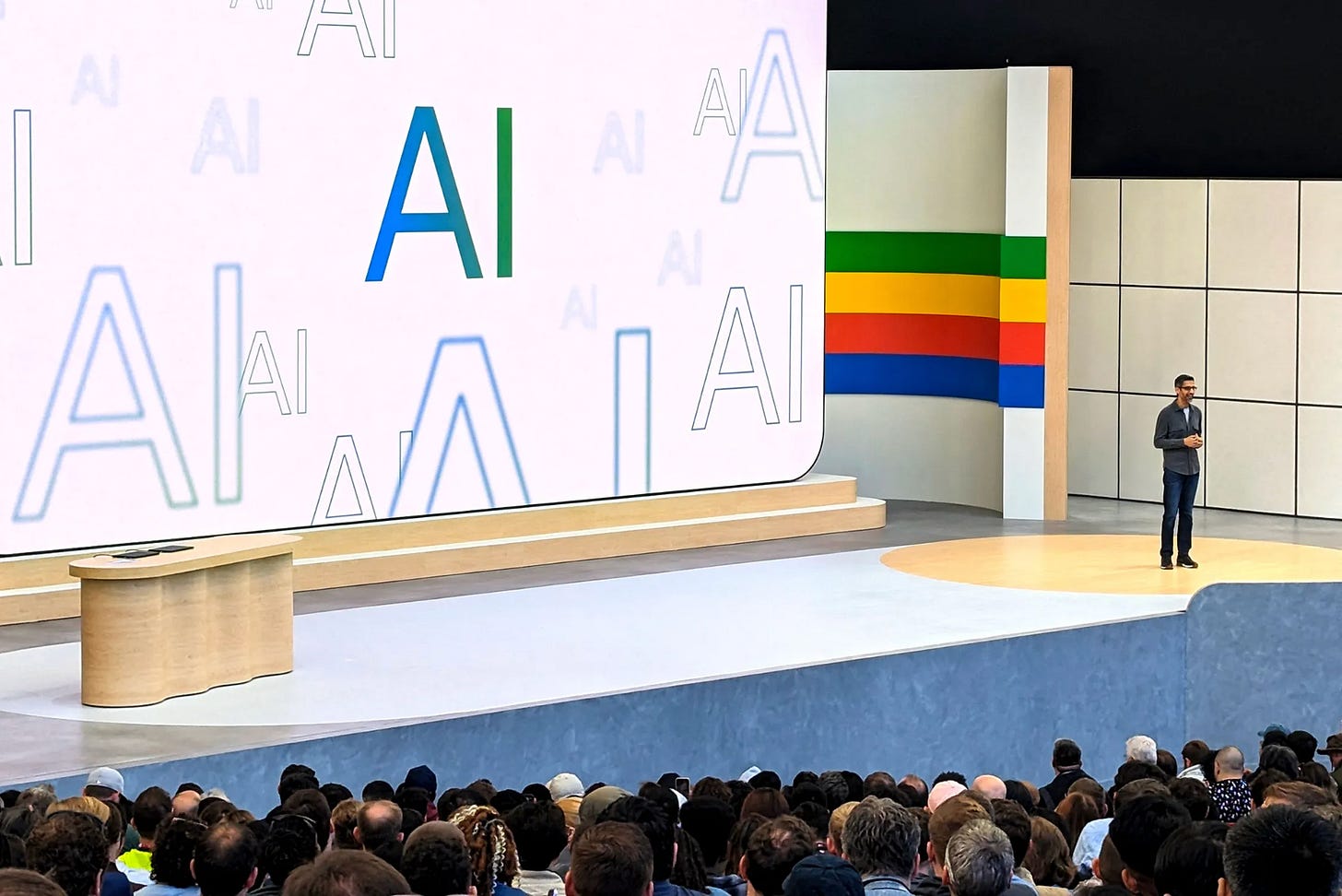AI 101: Google Is Telling Us To Eat Rocks? Unpacking Google’s AI Search Overview Nightmare
How panicked rollouts of AI tools highlight ongoing issues in AI integration
Welcome to another edition of AI 101, where every Wednesday we bring you the biggest AI update of the week.
This Week’s Update: Google’s New AI Search Overview Sparks Controversy with Bizarre Recommendations
At its annual developers conference on May 14th, Google announced significant updates to its search algorithms. The most prominent feature introduced was an AI search overview that provides users with an answer to their question above the typical list of links. The AI overview only appears on searches for which Google believes that it will be useful.
Over the last week, many users have observed strange results. To create its overviews, Google pulls from content on the web, often directly citing human-generated responses. In cases where a reliable source of information cannot be found, Google will sometimes use unverified information to create its recommendation rather than not answering. Famous errors include recommending users eat one rock a day to improve digestion, use glue to attach cheese to pizza, and cook spaghetti with gasoline.
Google responded by deactivating the AI overview feature on selected searches and made several modifications to the technology to prevent future false recommendations.
Why This Is Important
New competition from AI search engines and the reliance of consumers on ChatGPT for information have threatened to undermine Google’s market dominance in search. This pressure led the company to rapidly roll out AI tools that were not ready for public use. The recent misstep draws attention to a larger trend: companies are scrambling to introduce AI features to meet consumer demand for the new technology, even if it compromises the reliability of the service. In the long term, this pattern risks eroding consumer trust in AI advancements, setting back industry progress and widespread adoption if not managed with a greater focus on quality and thorough testing.
Quick Hits:
Starbucks experiments with a coffee shop run by 100 AI-powered robots
OpenAI partners with News Corp and The Atlantic, giving ChatGPT permission to display content from the publications in response to user questions
AMD introduces new AI chips to compete with Nvidia
Hitachi and Microsoft announce a multi-billion dollar, three-year partnership that will accelerate the integration of AI into international services




